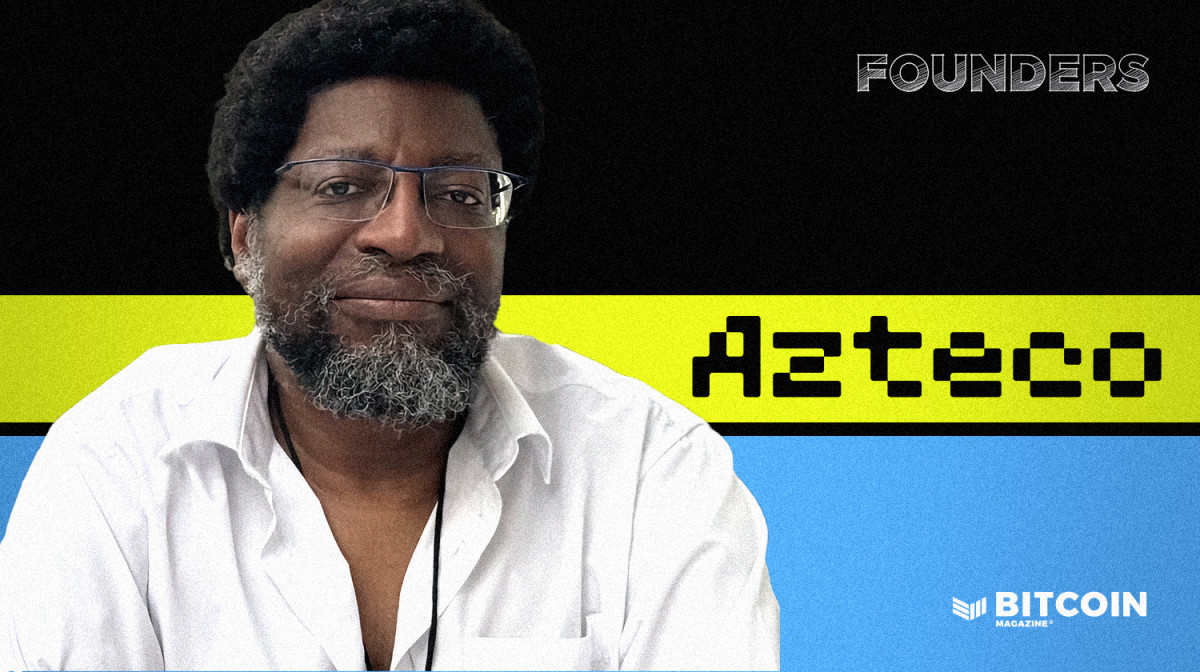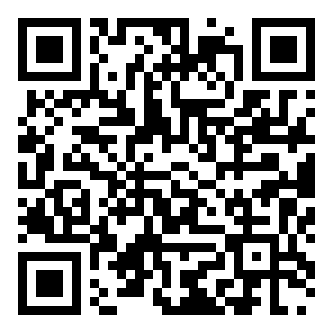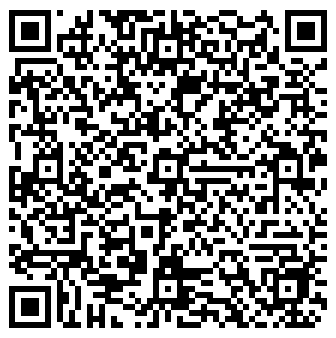Blogs & Articles: Azteco Is Helping Millions Buy Bitcoin Without Sharing Their Identity 🔗 13 days ago

- Category: Blogs & Articles | Bitcoin Magazine: Bitcoin News, Articles, Charts, and Guides
- Author(s): Frank Corva
- Published: 16th April 2024 20:40
Company Name: Azteco
Founders: Alexander Fernandez and Paul Ferguson
Date Founded: 2014
Location of Headquarters: Santa Monica, CA
Amount of Bitcoin in Treasury: Not disclosed
Number of Employees: 12
Website: https://azte.co/
Public or Private? Private
When Alexander “Akin” Fernandez first conceptualized Azteco over a decade ago, he simply wanted to make bitcoin easier to obtain. He wanted people to be able to purchase bitcoin as seamlessly as they were able to buy a gift card, and so he developed a system in which people can purchase prepaid bitcoin vouchers for as little as $10, redeemable in a minute.
Azteco vouchers are now available in over 190 countries, purchasable online or with cash with in-person vendors. The main advantage to buying BTC via Azteco vouchers is the fact that you don’t have to disclose your identity to do so, not to mention the process of buying a voucher is quick and easy. Azteco offers both on-chain and Lightning capabilities, giving users the choice to redeem their BTC on either the Bitcoin base chain or the Lightning Network, a Layer 2 payments network built on top of the Bitcoin blockchain.
According to an estimate from Fernandez, over one million people have already purchased Azteco vouchers. But his aspirations are far beyond the already-impressive number of vouchers thus sold: he has his sights set on Azteco servicing a customer base of over 30 times that, as Azteco does its part in “normalizing” Bitcoin.
A transcript of our conversation, edited for length and clarity, follows below.
Frank Corva: Where did the inspiration for Azteco come from?
Akin Fernandez: It came from my own experience of finding out that getting bitcoin is very difficult. I realized it doesn't have to be like this. We could use a familiar system like a top-up voucher, which billions of people use to top up their mobile phones, and apply that process to getting bitcoin. All we have to do is build a software, put distribution in place, and then it should just work. And lo and behold, it does.
Corva: Did you have a particular customer base in mind when you designed Azteco?
Fernandez: Yes, I had myself in mind. I wanted to be able to get bitcoin without having to make any kind of fuss or effort to do it. I wanted to be able to go to the supermarket, buy $20 worth of bitcoin and put it straight onto my wallet. And I'm not unique. I could assume that there were other people who were like me who could understand the proposition and the ease of use and who would take to it like a duck to water.
You find that with inventions, many times they come about because people are solving problems for themselves, not as a means to get rich or for any reason other than to solve their own problems. And because people are similar, they solve other people's problems, too.
Corva: Speaking of your own experience. I’ve read that you were unbanked for a period of time. Is this true and could you expand on it, if so?
Fernandez: Well, I became unbanked for a reason that I, until this day, don't know. I went down to “my” bank to cash a check, and they couldn't find my account in the system. I had received no communication from them in writing or in any way. All of a sudden, I had no bank account. So, for many years after that I didn't have access to credit cards or anything that other people in the West take for granted.
This taught me a very, very big lesson about how difficult it is to do anything in the 21st century if you don't have access to banking facilities. You can forget shopping online. You can forget any kind of convenience of going into a store and paying with a card. All of that goes away.
So, when I was working on Azteco, it was made clear to me how powerful a tool it was going to be, because, with Bitcoin, you cannot be unbanked by any third party. You have control over your synthetic money.
Corva: I’ve heard you use this term “synthetic money” before, and you’ve discussed how we shouldn’t refer to bitcoin as actual money. Why is it important that we do this?
Fernandez: It's important because it's true. Bitcoin is not money — it's a database. Can it be used as money? Of course. It can be used as very, very good money. It's a good simulation of money. But it doesn't have to be money for it to be useful.
Also, if you call bitcoin money, all the regulations that the state has imposed on actual money can be superimposed or brushed over Bitcoin inappropriately, making it hard to use and slower to spread. So, it's very important to tell the truth about Bitcoin. Bitcoin has taken so long to get into every nook and cranny because there's been this misconstruing of it as money.
WhatsApp reached a billion people in four and a half years. That's the kind of spread into people's phones that we'd expect if the rails to get onto Bitcoin were frictionless, just like they are with WhatsApp.
The fact that Bitcoin has not reached that number of people indicates that there's something wrong in the way people are thinking about it, and so it's important for us to think about it correctly.
Corva: How many people is Azteco reaching? Put another way, how many vouchers did Azteco sell in Q3 or Q4 of 2023?
Fernandez: The actual numbers I don't have at hand being the CEO and not the CFO. But we had our biggest ever month last month. I was told this yesterday. The number of vouchers we're selling is increasing, and this is a direct result of our increasing our distribution and also the sentiment towards Bitcoin changing on a global scale.
We're the easiest way to get bitcoin. When people discover us, they say two things: “First of all, why isn't everything as easy as this?” and “How come I haven't heard of this before?”
Things are synergizing and coming together to bring us to a point where we're a global force for good and for getting Bitcoin to the people who need it the most — the unbanked and the people who don't have access to financial rails or people who just don't want to be the victims of the financial rails.
The old school crop of Bitcoin businesses that have been serving people over the last 10 years all believe that Bitcoin is money and make it very difficult to get an account. Everybody's so inured to the idea of having a bank account or an account of any kind, whether it's through email or anything else. The assumption immediately is, “Well, of course, I have to have an account in order to use this service.”
With Bitcoin, that's not true, though. No accounts are necessary. [Some] wallet companies are doing this correctly. One of them is Samourai Wallet and another is Wallet of Satoshi where you don’t need to open an account to use your own money.
They’re saying you shouldn’t be able to use bitcoin without having an account. That’s what they’re trying to do in the EU.
Corva: We’re doing it here in the US with the Digital Asset Anti-Money Laundering Act (DAAMLA), too, the bill that Elizabeth Warren drafted.
Fernandez: These people are oath breakers. They’ve sworn an oath to defend and uphold the Constitution, which guarantees the free speech of every single American. Bitcoin is speech. It's a database where speech is written down and stored and transmitted from one person to another.
And lest anyone think that I'm picking on the Democrats and not the Republicans, Cynthia Lummis has written an absolutely appalling bill that I took great pleasure in tearing to pieces on my blog.
They don’t understand what their role is as a public servant. A servant is not in control of its masters. A servant is obedient to the electorate. It’s not their business to tell people you have to KYC to use bitcoin.
Corva: On the topic of America and KYC-free bitcoin, do you see people using Azteco because they want KYC-free bitcoin?
Fernandez: In order for the American market to be cracked, the service has to be explained. People have to be deprogrammed. They don’t understand that bitcoin is not a vehicle to make you earn more fiat.
People need to be broken out of these bad habits to be shown that actually there are better ways to get things done. The perfect example of this is WhatsApp.
Before WhatsApp, people used to pay for SMS messages, while the idea of this is now unthinkable. A similar process has to happen with Bitcoin where you can send money to family members without having to go through a third party or pay exorbitant fees or identify yourself or anything like that.
With Bitcoin, you [also] get other subtle benefits. Hyperinflation is starting to kick in and people are starting to realize that there’s something wrong with the money.
People find it very difficult to go to the root cause of the prices going up at McDonalds. Let’s say they did find out the cause, what could they do about it? They could go and get bitcoin, but it’s several steps down before these people are going to see bitcoin as the answer.
Corva: I agree.
Fernandez: Also, the current crop of businesses — big businesses like Binance, Coinbase — are synonymous with bitcoin. Azteco needs to be synonymous with getting bitcoin. The vast majority of people on earth are not rich. They don't have $100,000 to spend on bitcoin. They live day to day.
Since these people are not investors and they don't have spare money to keep in bitcoin in the hopes that it's going to go up — which of course it will — they need to have bitcoin as daily money for everyday spending.
Once you start talking about these things, the business opportunities and models start to just fall out of the conversation. All of these Cynthia Lummises and Elizabeth Warrens prevent these business models from emerging because they're regulating something they have no business regulating.
Corva: Speaking of other businesses, I’ve heard you say good things about Machankura, a protocol that makes it easier for Africans to use bitcoin in a KYC manner, and that it serves as a compliment to Azteco. What other companies in the Bitcoin space are a compliment to Azteco?
Fernandez: Ethical Bitcoin wallets are a good compliment. By ethical, I mean Samourai Wallet and Wallet of Satoshi. I know that some people don’t like Wallet of Satoshi because the architecture on the backend is not to their liking, but these people don’t run businesses — they don’t know how difficult it is to do these things.
The newest entrant to this is the Bitkey wallet. This Bitkey wallet is absolutely unbelievable. They've thought about this properly. The user interface and user experience — it's going to make everybody change their game.
I've been saying for a long time that somebody like Apple, Microsoft or some other company is going to get into Bitcoin and bring all of that user experience thinking to the process of using Bitcoin. The current crop of companies have not thought about user experience.
Jack Dorsey’s Bitkey has been a kick in the backside to a lot of people who realize that we can't just carry on doing what we want to do and expecting people to just accept it — the idea that you have to write down your mnemonic before you receive your first transaction. It’s completely crazy.
If Apple developed its own Bitcoin wallet or clones one of the Bitcoin wallets out there, Bitcoin is going to be exposed to people in a way that's very easy to understand, very easy to consume. There will be the new generation of Bitcoin users for whom Bitcoin is totally normal — not threatening, intimidating or frightening.
Corva: The same way that using WhatsApp or Uber is normal now…
Fernandez: That's exactly right. Bitcoin has to become boring.
azteco_article_preview-v2








